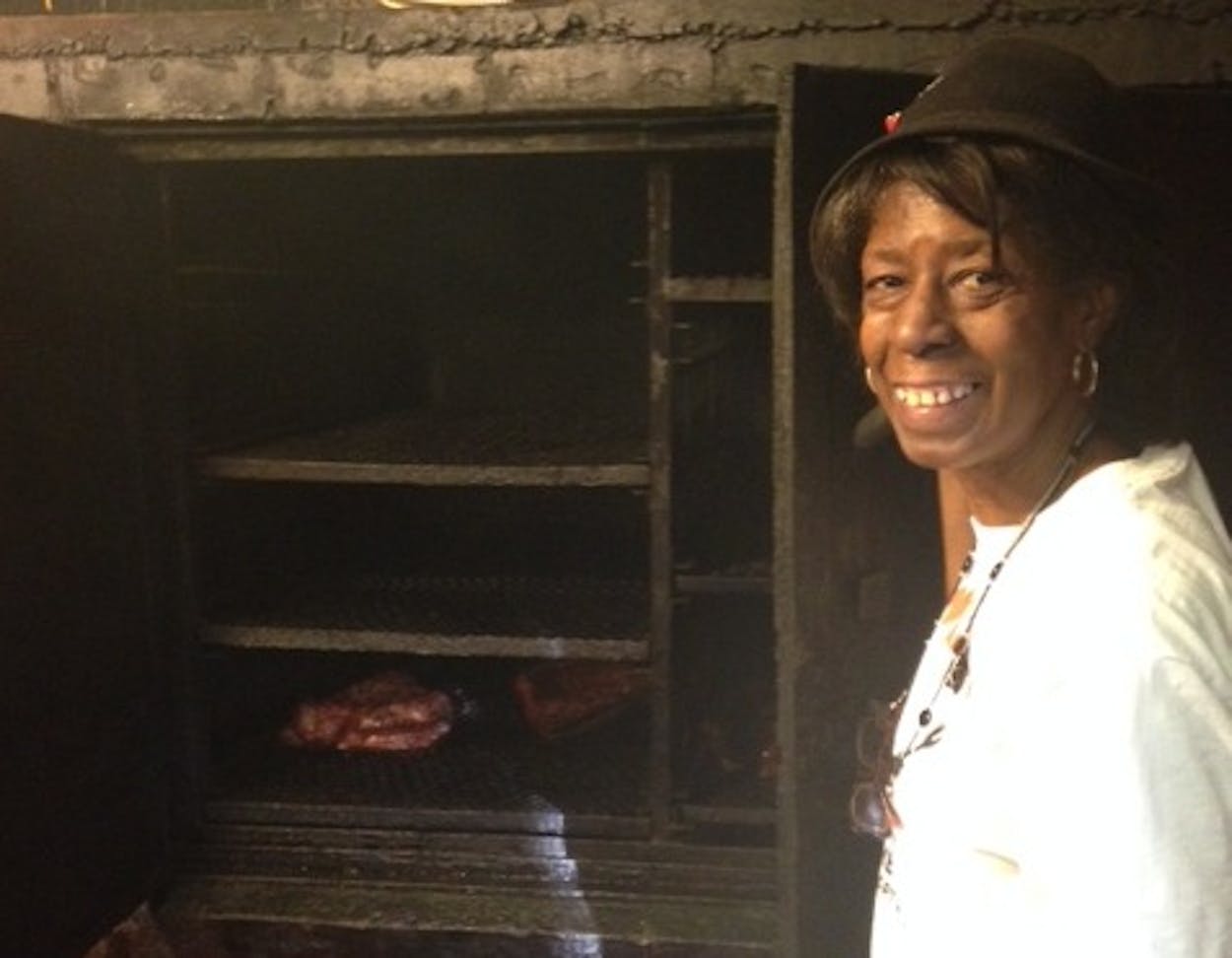Arguably the most beloved figure in Texas barbecue is Tootsie Tomanetz, a septuagenarian pitmaster who’s been tending the fires at Snow’s BBQ since it opened in 2003. She was first discovered by Texas Monthly in 2008, stooped over the hot smoker on the outskirts of Lexington, Texas, churning out what was declared the best barbecue in Texas. The former meat market proprietor and a school custodian has since become one of the most famous pitmasters in the state—fame magnified by the fact her bona fides as pitmaster is largely an anomaly in the male-dominated world of Texas barbecue.
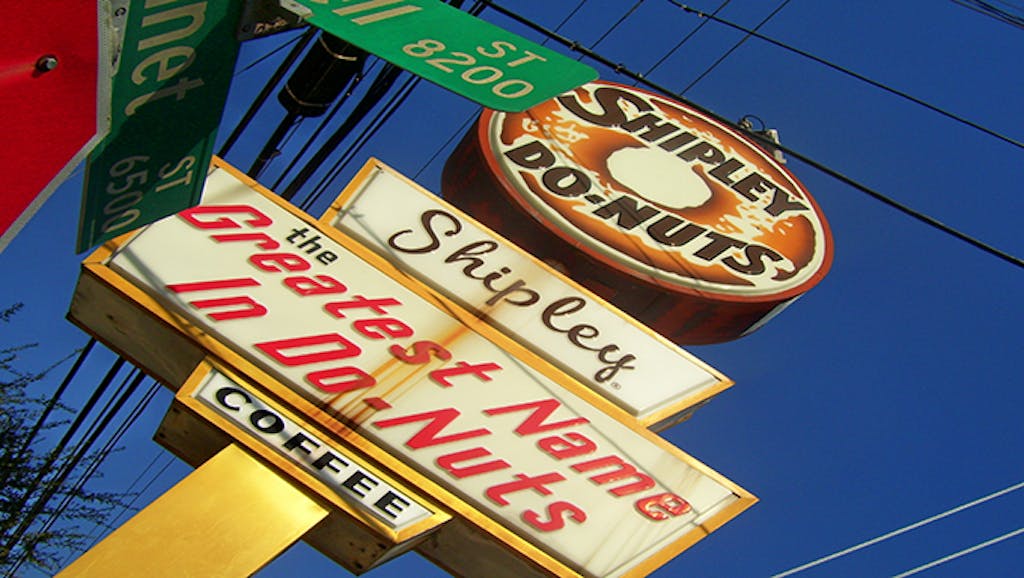
At last count there upwards of 1,900 barbecue joints in Texas, and when I decided to report a piece on female pitmasters, I could count the number of women I knew tending a smoker on one hand. After a few months of research, my list grew, but the percentage is still alarmingly small. It got me to thinking, what is the cause for such massive under-representation?
“It’s hard to do this. Not everybody can cook barbecue” was one attempt at an explanation from Rochelle Arsate who runs Hot Spot BBQ in San Antonio. Based on her intensive regimen—she loads wood and meat into the pit six days a week, takes orders at the window, prepares and delivers the food, and stokes the fires, all with no help from an assistant—she’s not exaggerating. She started at Hot Spot when her dad Ricardo was still cooking, but he had to retire due to health issues. “He threw me in there and I’ve been doing it ever since,” Arsate said. After a bite of her brisket or lamb ribs you’ll know that she’s taken to it just fine.

Most people know that tending a pit—tossing in large chunks of wood, loading ten-pound briskets and slabs after slab of pork ribs—requires a lot of physical labor. Pat Mares of Ruby’s BBQ in Austin was no stranger to using elbow grease. “I’m a farm girl from Nebraska, so I’m used to it.” Nowadays she’s too busy managing the bricks-and-mortar business near the University of Texas she and her husband opened in 1988 and a thriving catering operation to man the pit room most days, but her fingerprints can be found all over Texas barbecue culture. Years ago she was instrumental in coordinating the Central Texas BBQ Festival (which is no longer around), and she also worked closely with the team from UT who documented and preserved Texas barbecue stories in the book Republic of Barbecue. Mares is what you might call a barbecue states(wo)man.

On the other side of town, you can find Kathleen Mann at the helm of Mann’s Bar-B-Q. Her rise to the top of the family business is similar to Arsate’s. After the health of her father, Jim, deteriorated, she was left to take over. Now it’s just her and two other employees, which has allowed her to put her own mark on the place. She creates weekly specials, and she’s even transplanted some barbecue touches from her Georgia roots (finding a Brunswick stew in Texas is hard enough, but Mann’s, along with some pulled pork and cornbread, is worth a visit).
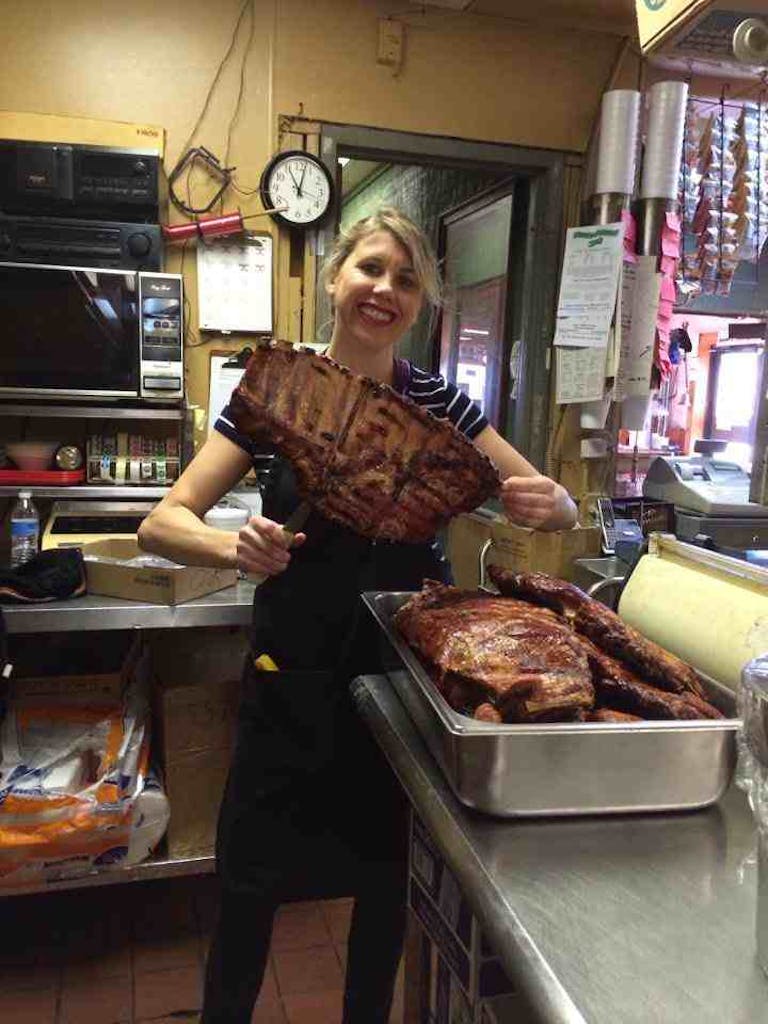
Mann is aware of the rarified air she’s in. During a 2012 barbecue festival, she said “One of my friends who was helping me out kept looking around, and he said ‘Kat, do you realize you’re one of the only female pitmasters I’ve ever known?’”
But not everyone is so self-aware. In Fort Worth, Brenda Pfifer of Bailey’s Bar-B-Que never really noticed the lack of women making barbecue. “I’ve been doing it for so long that I’ve never thought about it,” she said. She started working with her father Buddy Pratt when she was fifteen years old, and now, nearly four decades later, she is training the next generation (a male employee) who might end up being her replacement.
These women—Rochelle Arsate, Kathleen Mann, and Brenda Pfifer—have all shown the fortitude to keep the fire stoked, but they essentially inherited the positions from their fathers, not only as pitmaster, but as owner, so long as they were willing to do the work. Opening a barbecue joint can be the biggest hurdle to becoming a barbecue entrepreneur, and it’s even tougher for women cooks according to Nicole Davenport. “I wish investors would pursue women in the same way they pursue men. It’s not an even playing field.”

Davenport, a Midland native, received support, but only after collecting accolades from meat-centric cooking competitions and televised barbecue challenges. She has proven herself on BBQ Pitmasters and Chopped, but even then it was hard to be recognized for her skills with meat and fire. After she appeared on Chopped she was flooded with fan mail. “They all read like, ‘I’m your man. I’m divorced and I’ve got two kids. Let me hit you up,’” she said. “Not one of those messages asked about my techniques or what is was like to be on the show.” Even during the filming of the show she felt like one of the token women. She was playing the character of the Texas Cowgirl, which thankfully, came naturally.
As a fifth generation Texan, Davenport was raised on the ranch her great-great grandparents started outside of Midland. Cooking over fire came naturally, so she branched out into the restaurant world. After a failed partnership in Fredericksburg at Sugar & Smoke, she set her sights on the big city. A well-to-do investor was looking to open something big and wanted Davenport to be the pitmaster. But the two of them didn’t see eye-to-eye on the cooking methods and food quality, and she left the project before it opened. Would it have been different if she were a man? “Absolutely.” And the prejudice for her has even extended to the competition arena: “Even when I won the world championship steak contest, all the guys came up to the judges and said ‘Y’all need to recheck this. You screwed up the score.’” But the democracy of blind judging is what keeps her competing—and winning. She keeps the focus on her meat, and, in her words, “Anything that has to do with femininity, I just kill it. I put on baggy pants, a sports bra, hat down, sunglasses on, lower my voice.” Despite her the fame that comes along with the television appearances, she’s hesitant to put her name on her next venture. She doesn’t want people to come in with any pre-conceived notions.
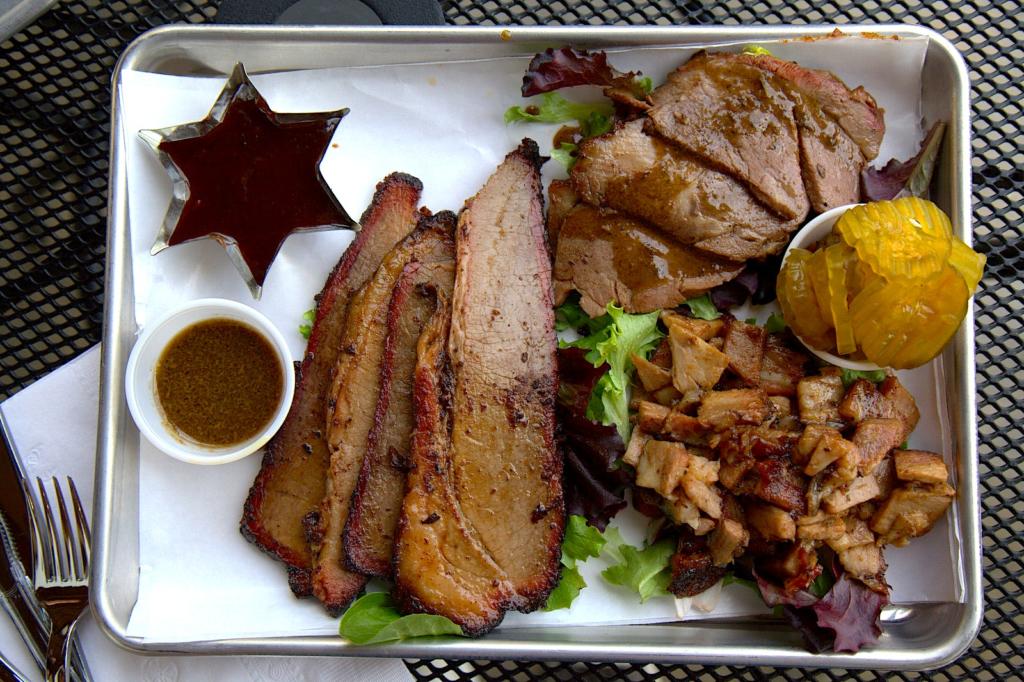
Natasha Smith took the opposite view when she opened her barbecue joint in Port Isabel. She named it Lady & The Pit, and the locals seem to like her food. She moved her business from Fort Worth to the coast because the deal was right for the building. As for skeptical customers? “I don’t get intimidated by that. They’ve just gotta taste my barbecue.”
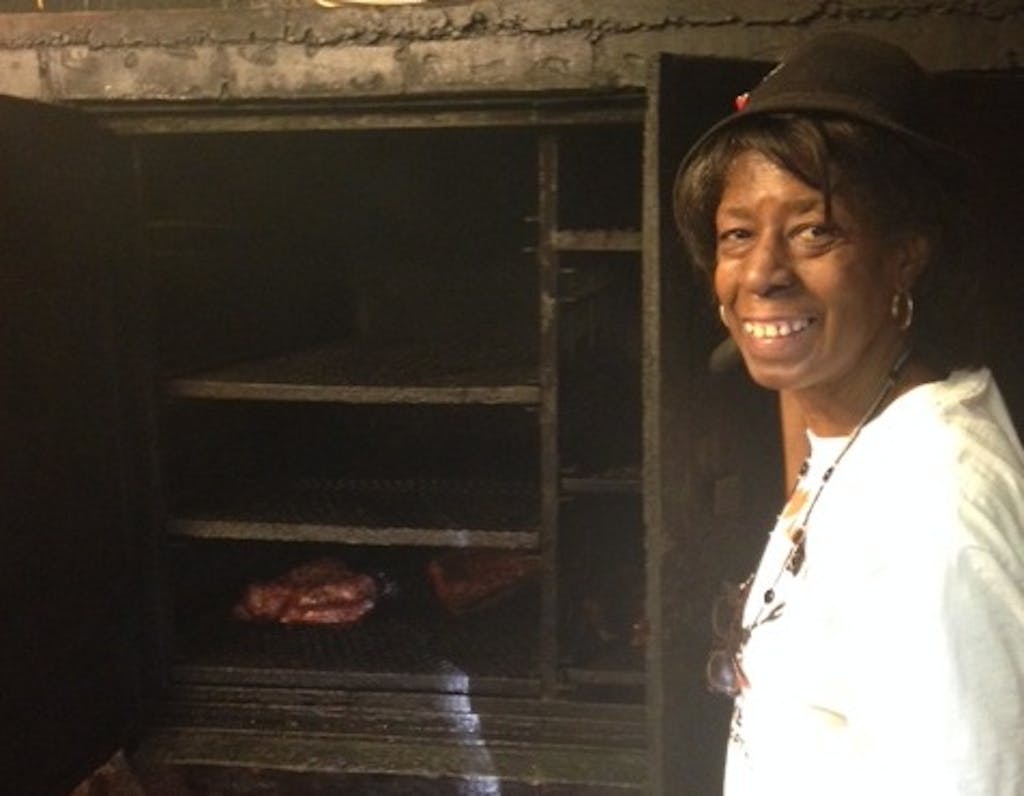
If you’re rolling your eyes about the possibility that folks would judge barbecue differently based on the sex of the person who cooked it, then consider that sometimes a potential sexist customer might not even bother taking the first bite.
“Some of the older people would look through the window and see my face, then they’d take off. I couldn’t figure out why,” Kim Dunn, owner of Pit Stop Bar-B-Q in Belton said. “They were probably wondering how the hell an Asian woman learned how to barbecue.” (Dunn has since moved the business to Temple, which now gets to enjoy her incredible Korean-style beef short ribs.) To encourage the doubters, Dunn has erected a sign that reads “Taste It Before You Buy It.”
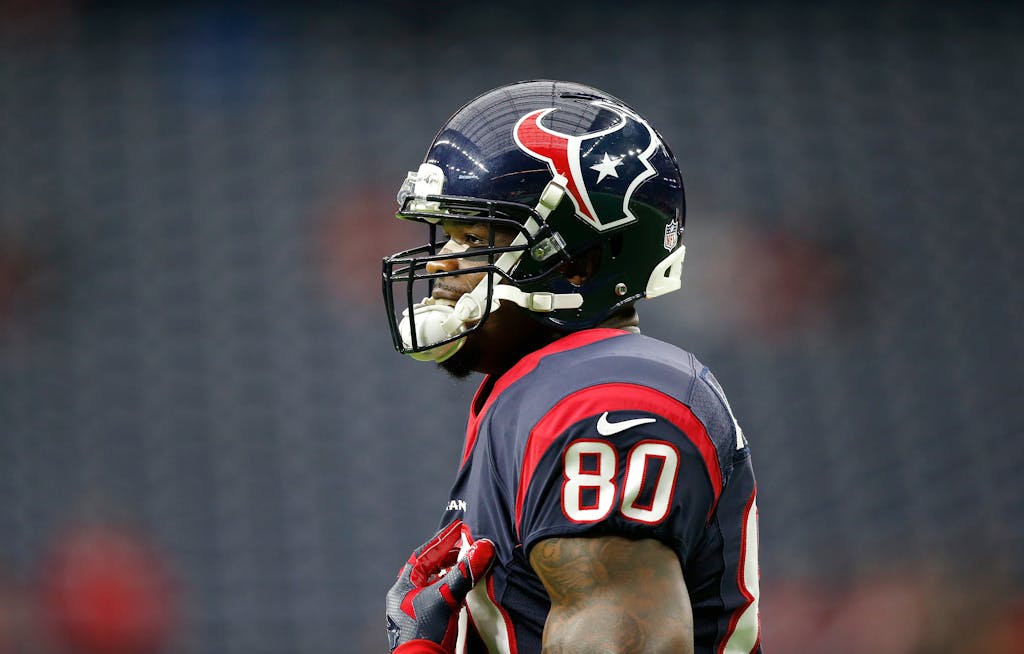
It should also be noted that when the barbecue tasting team – that would eventually anoint Snow’s BBQ as number one in the state – tried the barbecue at Snow’s, they didn’t know a woman had cooked it. Those initial bites had occurred on the dining room tables of Texas Monthly’s Katy Vine after her husband had purchased it from Snow’s owner Kerry Bexley. Most of us like to think that our biases wouldn’t cause us to second-guess in such a way, but what if Tootsie had served it up herself to the team right there in Lexington? Would Snow’s have been given those considerable accolades?
But no one would turn down their mother’s home cooking, right? Ernestine Edmond, who opened Mama E’s in Fort Worth, made that point that while “today it seems like barbecue is a man’s sport, but women taught them how to cook it. For them to come up here and see me man my pit, I guess it’s not common, but I put my own wood in my firebox and keep my own fire going.” And after eight years in business, drawing a steady base of customers, she has the fans to prove that she’s doing good work.

Faye Coleman runs the pits at Sistah’s Mississippi Style BBQ, in Arlington, and her sister Barbara Jones handles the baking, and the two of them—a female duo running a barbecue joint—sometimes draw looks of skepticism. She recognizes the stigma, so when they get a questioning look, she’ll break the tension with something like “We ain’t killed anybody lately, so come on in.”
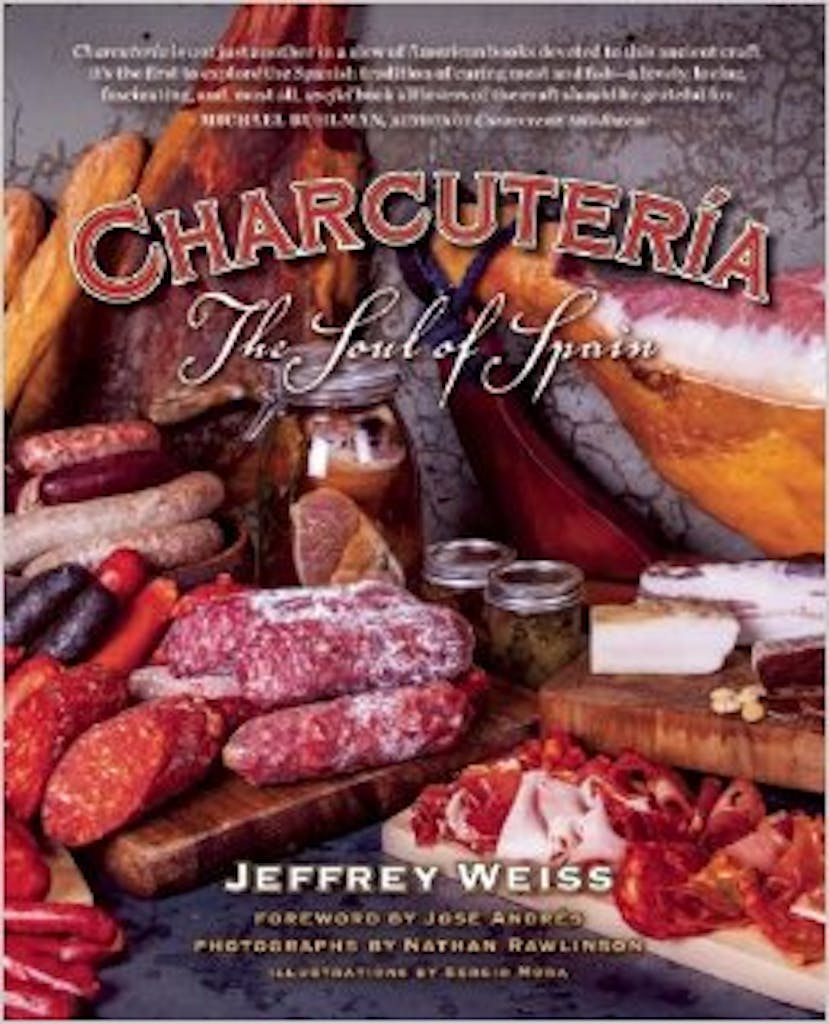
Another two women were once big barbecue influences. Kathy Braden of the Burns family in Houston had opened her own place on Shepherd following the death of her father, but when I pulled into the parking lot there was a For Sale sign. She had closed just weeks earlier. Last year Thelma Williams also had to close her business near the University of Houston campus. Thelma was most famous for her surliness and steadfast rules about how to act in her shop. It was an easy place to get kicked out of, but many found the barbecue worth the hassle (it made Texas Monthly’s Top 50 in 2003).
On the front sign of the original Riscky’s Bar-B-Q in Fort Worth is reads “Home of Jim’s Famous Bar-B-Q.” What that sign leaves out is the original pitmaster, Mary Riscky. A few months ago Joe Riscky was telling me the history of the family business, and I naively asked which of the men in the family had taught Jim how to cook barbecue. “My great great grandmother was the one that did the barbecue.” I think they need to get her name upon the building too. We need to celebrate these women, and maybe others will be more confident to follow in their footsteps. Texas can always use another great pitmaster, and we need a few more Marys and Tootsies, and even a few more Thelmas.
- More About:
- Black BBQ


